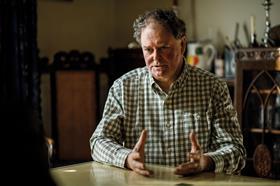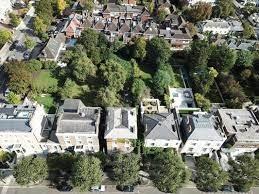A children’s charity has launched a legal challenge against the last government’s leasehold reforms, alleging that the legislation will trigger hefty windfalls for millionaire property owners at the charity’s expense. John Lyon’s Charity says it is facing ‘terrible’ losses on freeholds its owns, income from which funds community projects across nine London boroughs.
John Lyon’s is represented by prominent media and human rights solicitor Mark Stephens CBE, of Howard Kennedy, and Edward Fitzgerald KC from Doughty Street. They are seeking a High Court declaration that the Leasehold and Freehold Reform Act, which received royal assent on 24 May, is incompatible with the right to property under the Human Rights Act 1998.
The aim of Michael Gove’s leasehold reforms is to make it cheaper for home-owner leaseholders to purchase freeholds. This is to be achieved primarily by excluding so-called ’marriage value’, which is the additional value gained when the landlord’s and leaseholder’s separate interests are ‘married’ into a single ownership.
John Lyon’s contends that exclusion of marriage value creates a vast redistribution of wealth from freeholders to leaseholders. According to an impact assessment, the transfer amounts to £3.6bn over 10 years. John Lyon’s estimates that it will lose about £1.4m annually, cutting the sums it can award in grants to projects ranging from youth clubs, to holiday activities and drama classes.

The principal beneficiaries of the transfer will be wealthy leaseholders in London’s St John’s Wood, where flats cost between £700,000 and £1.8m, and house prices average £2.8m, it argues.
’Quite scandalously, at the expense of a children’s grant-giving charity, the act gives wealthy property owners in some of the most expensive streets in London around St John’s Wood windfalls of millions – including non-doms, tax exiles and companies in offshore tax havens,’ Stephens told the Gazette. ’John Lyon’s is first to legally challenge this pernicious legislation by lodging a judicial review seeking a High Court declaration of incompatibility with the Human Rights Act. The impact of this legislation is to remove income streams from the charity, whose income to fund its philanthropy derives from its centuries-old land holdings – dating from a time when Swiss Cottage was farmland.’

The wealth transfer has yet to take effect because the relevant provisions are yet to be brought into force by secondary legislation. John Lyon’s want the lawfulness of the act to be resolved promptly, partly because the reforms have already reduced the value of its estate.
The Church of England also opposes the abolition of marriage value on similar grounds. Speaking in the Lords in April, the Rt Rev Prof David Walker said: ‘The bill, as drafted, will take money presently used for charity purposes and give it to the wealthy - robbing the poor to pay the rich: a reverse Robin Hood.’
Responding, the Department for Housing, Levelling up and Communities responded then by saying the bill ‘will improve home ownership for millions … by making it cheaper and easier to extend their lease or buy their freehold’. It added that removing marriage value will level the playing field.
Since 1991 John Lyon’s has distributed over £186m to a range of services for young people, including youth clubs, arts projects, emotional wellbeing initiatives, parental support schemes, sports programmes and academic bursaries.
This article is now closed for comment.



























13 Readers' comments